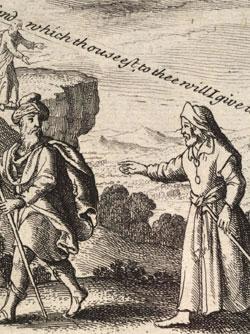Elected by Men or Appointed by God?
Since the time of Confederation, Canada has held 42 federal elections, with the most recent occurring on October 19, 2015. The 78-day campaign—long by Canadian standards—leading up to October 19 consisted of rallies, TV debates and the traditional door-to-door appeal to the voter for support of their party. The Liberal Party of Canada, headed by Mr. Justin Trudeau, won a decisive victory—garnering 39.5 percent of the popular vote and 54 percent (184 of 338) of the seats in the House of Commons, thus forming a majority government.
Conservative Party leader Mr. Stephen Harper, who was the 22nd Prime Minister since Confederation, officially stepped down on November 4, 2015 when Canada's new Prime Minister, Mr. Justin Trudeau, was sworn in to become Canada's 23rd Prime Minister.
Mr. Trudeau represents a second generation of Trudeaus occupying this seat of authority. He now resides at Sussex Drive in Ottawa where many years ago he lived with his father and mother, when his father, Pierre Elliott Trudeau, served as the 15th Prime Minister of Canada from April 20, 1968, to June 4, 1979, and again from March 3, 1980, to June 30, 1984.
Many consider Mr. Trudeau's election to be crucial and many wonder what direction this country will take under his leadership and during the years of Liberal Party mandate. His controversial stand, for example, on the need for the legalization of marijuana was an obvious appeal to many of the electorate.
Change and Leadership?
Perhaps we can get a further glimpse of things to come from the prepared slogan of his party. Often repeated by the Liberals during the 78-day campaign was the phrase "Real Change." It remains to be seen what this will mean in reality as the months and years go by.
The other two main parties, the Conservatives and New Democratic Party, also had their slogans, the New Democratic Party quite similar, being "Ready for Change" and the Conservatives, "Proven Leadership for a Strong Canada." But, can any political party of any persuasion actually deliver what is truly needed for the continued welfare of the nation?
Many Canadians take great pride in exercising their right to vote for whom they think might be better to serve the needs of the country—and represent Canada on the world stage—based on their party agendas and platforms. They often become financial contributors to their favourite party and thus become part of their party's campaign machinery in hopes that their vote will make a difference. To not vote, many think, is an abrogation of responsibility. Some might even consider it unpatriotic to fail to exercise this franchise.
But, does God Almighty take an interest in the leadership in Canada, as well as all the governments around the world? Yes, He does! In fact, God is the one who decides the governing authority of nations.
The prophet Daniel told King Nebuchadnezzar of ancient Babylon that "the Most High rules in the kingdom of men and gives it to whomever He chooses" (Daniel 4:25). And again, "He removes kings and raises up kings" (Daniel 2:21).
So, yes, God is involved in choosing the leadership of Canada—and all nations.
As this magazine's Editor in Chief wrote before the last U.S. presidential election, "Where is God in all of this? From the beginning, human beings have tried to rule themselves without God's direct leadership. Most professing Christians do not even realize what Jesus Christ has to do with government" ("How Would Jesus Vote for President?," September-October 2012, p. 5).
A song often sung during the time surrounding December 25 is the famous "Hallelujah Chorus," which features the often-repeated words, "The kingdoms of this world shall become the Kingdoms of our Christ… and He shall reign for ever."
That will prove to be the final solution to all the ills of humankind—not just Canada's.
A Christian's Responsibility
With all this in mind, what responsibility does a Canadian citizen who is also a Christian have toward the governing powers that God allows to be in place?
Jesus Christ, when He walked on planet Earth, did not participate in the government structures of this world, but He did urge people to be subject to the governing authority—even to the point of paying taxes: "Render therefore to Caesar the things that are Caesar's, and to God the things that are God's" (Matthew 22:21). Christ set an example as one who was subject to civil laws and authorities and expected His followers then and expects His followers now to do likewise.
The Apostle Paul wrote: "Let every soul be subject to the governing authorities. For there is no authority except from God, and the authorities that exist are appointed by God. Therefore whoever resists the authority resists the ordinance of God, and those who resist will bring judgment on themselves" (Romans 13:1–2). Paul further explains: "For because of this you also pay taxes, for they are God's ministers attending continually to this very thing. Render therefore to all their due: taxes to whom taxes are due, customs to whom customs, fear to whom fear, honor to whom honor" (vv. 6–7).
Pray for Leaders
Paul also instructs us to pray for those in positions of authority. "Therefore I exhort first of all that supplications, prayers, intercessions, and giving of thanks be made for all men, for kings and all who are in authority, that we may lead a quiet and peaceable life in all godliness and reverence" (1 Timothy 2:1–2). There is much in God's word about the responsibility for all to be subject to the leadership, even while realizing that, in the event of a conflict, God's laws and directions supersede the ordinances of human government.
Yet, truly, Canadians indeed are very blessed to be living in a nation that has many laws and benefits in place for the betterment of all. Doubtless there have been Canadian politicians and leaders, in the past, who despite their human frailties and weakness have striven to provide what is considered their best for the people. God has allowed leaders to be set in place, even in the latest election process, who will see that His will is done in the overall sense according to His plan, which He is working out here below. That will may be for Canada's blessing, or for its cursing—it all depends on the people, and how they have responded to their God.
God is in charge. A democratic form of government may well be the best that humanity can hope to achieve on its own, but, as former British Prime Minister Winston Churchill famously said to the House of Commons: "Democracy is the worst form of government, except for all those other forms that have been tried from time to time" (November 11, 1947).
So, it remains to be seen what this country's direction and course will be over the next number of years. To repeat what the Apostle Paul said to Timothy, "Therefore I exhort first of all that supplications, prayers, intercessions, and giving of thanks be made for all men, for kings and all who are in authority, that we may lead a quiet and peaceable life in all godliness and reverence."






